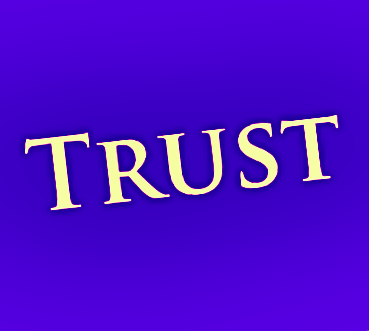
By Tom Peterson
A group I work with has giant ambitions. It’s pioneering ways to better reach underserved people with quality healthcare, and doing it on a large scale. To pull this off, it’s asking already busy people in a complex institution to disrupt their routines and work differently. It’s shifting the internal culture. The number of moving parts is too fierce to mention. It’s moving into many culturally different geographical areas at once. At the same time, it’s forging scores of partnerships with other institutions, big and small.
If you ask how it’s progressing, you’ll be told it can only move at the speed of trust. Each forward step is dependent on a relationship that’s built as the team, the partners and the participants trust each other.
To accomplish truly great things your team and partners should be able to trust each other as they would the pilot flying their plane or the surgeon getting ready to cut them open. I know, that’s easier said than done.
How do you build trust, create a trusting environment?
Every group is somewhere on the spectrum of trust. How do you improve? You have to slog away every day to build trust, in every encounter.
- To start, leaders and others have to be committed to and model a true environment of trust. You have to have integrity. Do the right thing yourself. This is the sine qua non not only for a thriving culture but also whether true talent will stick around at all.
- Be clear about the shared vision, the big goals. Communicate the expectations and the direction as much as it takes so everyone is clear. Keep people informed.
- Begin with transparency and open discussion. Learn to say the hard things. Admit your own shortcomings. Share your concerns, as well as dreams. Create space where people feel safe to speak from the heart.
- Structure jobs and processes as flatly as possible. Where each person is valued and feels valued. Liberating Structures is one tool that when used over time will help you make this shift.
- Keep confidential things that should be confidential.
- Listen. Not just so you can think of how you’ll respond, really listen to what others have to say. So you can actually learn from them. And where there is conflict, listen hard, look for common ground.
- Appreciate openly what each person brings to the table. Learn a thousand ways to say thank you. Focus not on how something could have been done better but on how they moved the work forward. Acknowledge the contributions of others.
- Show trust in your coworkers. Treat a team member’s misstep or mistake not as cause for reprimand, but as a learning opportunity.
- Be accountable, do what you said you would do. And hold others accountable for doing what they said they’d do.
- Learn to ask for help. Often seen (especially by our own inner critic) as a weakness, asking for help—and being ready to help when asked—is actually the best way to build trust and team. In her TED talk, Amanda Palmer—musician, actor and one-time eight-foot bride—shares her experience in connecting with people, trust, crowd-sourcing, couch surfing and asking for help.

No comments yet.